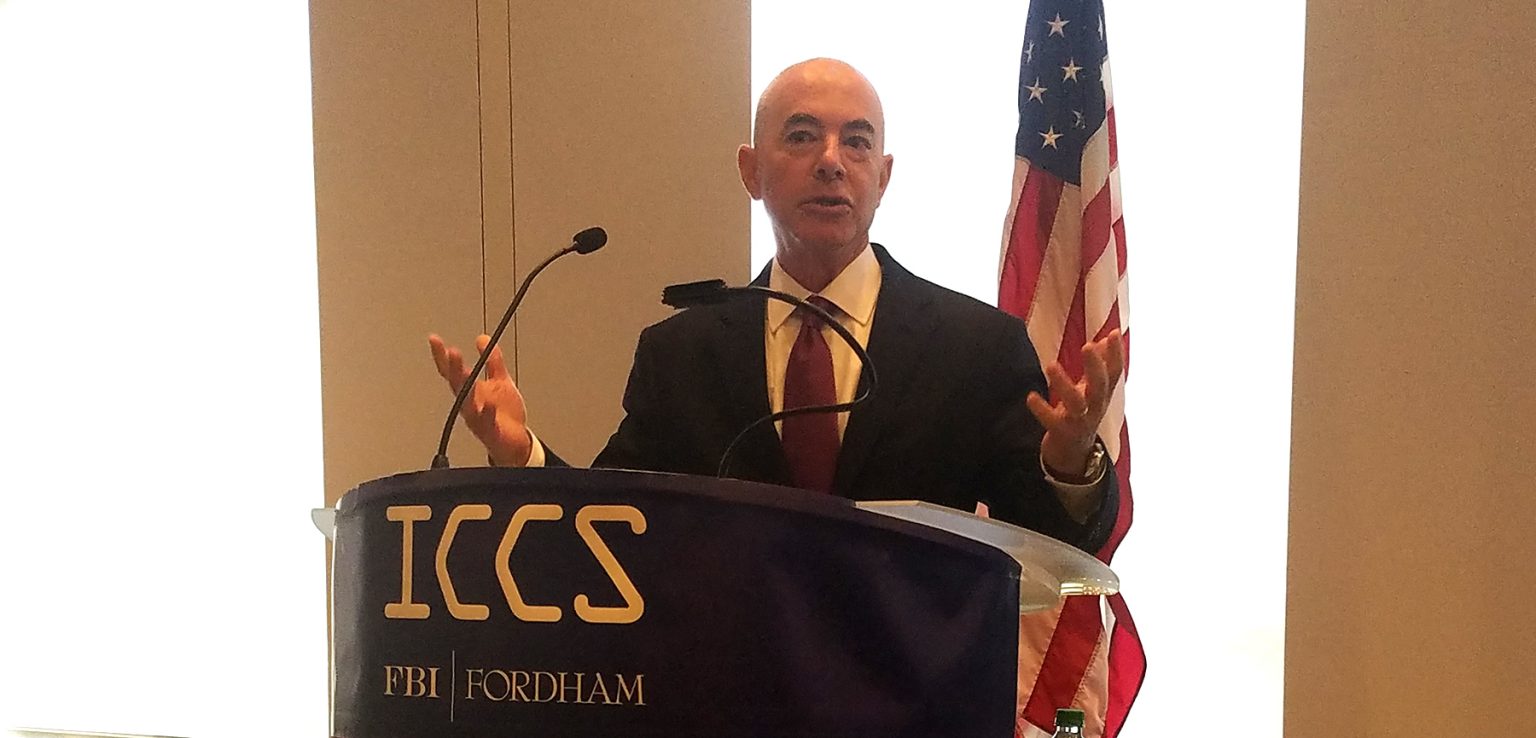Alejandro Mayorkas, deputy secretary of the U.S. Department of Homeland Security, implored the private sector to share information with the government so it can prevent individual cyber attacks from blossoming into much larger problems, in an address at the fourth day of the International Conference on Cyber Security (ICCS).
Speaking at the Lincoln Center campus on July 28 at a conference held by Fordham and the FBI, Mayorkas said cyber threat indicators—information used to identify cyber security threats—need to stop being traded by security firms as if they were common commodities.
“Look, we’re all in this together. Some of us are in it as a calling, some of us are nonprofit, and some are for profit. For those of you who are for profit, you have many streams of revenue. The cyber threat indicator should not be one of them. That needs to be a public good,” he said.
“Hopefully, we’ll get to a point where that become a public good and is no longer a for-profit commodity, and we can raise the bar of the entire cyber ecosystem in terms of our defense mechanisms.”
Mayorkas noted that the “seminal announcement” by the White House on Tuesday at Fordham detailed the government’s new approach to responding to significant cyber incidents. The directive features a framework with two priorities: a threat response, which is an effort to identify perpetrators and hold them accountable, and an asset response, in which the goal is to identify the nature of the attack, identify and help expel the perpetrator, identify the vulnerabilities that permitted the intrusion, and identify if there are other victims who need help.
The challenge, he said, is that a core principle of asset response is the dissemination of information as broadly as is needed. It’s extraordinarily important do this at network speed because attacks can be replicated with the click of a button, but he acknowledged that a trust deficit exists between the cyber community and the government, thanks in part to 2013 revelations by former National Security Agency contractor Edward Snowden.
“The idea of voluntarily providing information to the government still requires a bridge for many to cross, and I hope that we will all work very hard to overcome that trust deficit,” he said.
“Words, of course will not do it, but action, and bringing benefit to different communities will achieve it, and it’s a privilege for me to be a part of that effort.”

